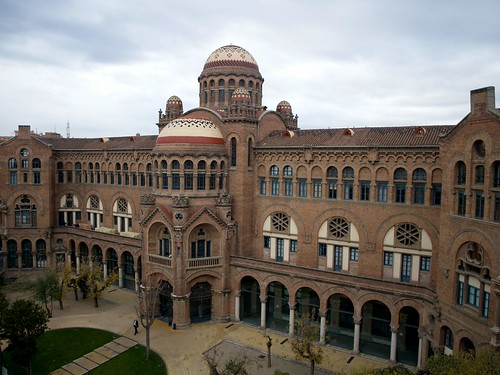Yesterday and today I spend several hours on the conference held by Crei,
Information, Beliefs and Expectations in Macroeconomics
20 & 21 May 2011
Organized by Kristoffer Nimark (CREI & UPF) and Bartosz Maćkowiak (European Central Bank).
To be honest, I have waited for the conference for a while, as I was writing things on beliefs and expectations. However, this conference is a little bit out of my expectation - so again, my expectations deviates from the truth. My poor background in macro is definitely not enough to support me for understanding the presentations, and among all of them, I picked a few to stay and thus make myself confused. They were:
Exogenous Information, Endogenous Information, and Optimal Monetary Policy
Luigi Paciello | Einaudi Institute for Economics and Finance
*Mirko Wiederholt | Northwestern University
Discussant: Jordi Galí | CREI & Universitat Pompeu FabraLearning about Consumption Dynamics
Michael Johannes | Columbia U., Columbia Business School
Lars Lochstoer | Columbia U., Columbia Business School
*Yiqun Mou | Columbia U., Columbia Business School
Discussant: Francisco Barillas | Emory U., Goizueta Business S.Public’s Inflation Expectations and Monetary Policy
Leonardo Melosi | London Business School
Discussant: Francesco Bianchi | Duke University
Just as I had expected, it was too easy for me to get lost in these presentations. In a few minutes I got the feeling that I don't know what's going on so ever. well...Except for the fantastic graphs I have seen, I haven't gained much intuition from them.
A noteworthy point is in Mou's presentation, he empirically showed the convergence to rational expectation. I should admit I don't really understand the techniques he utilized, and so are the debates afterwards. After his presentation, I talked to him with the learning process a little bit, but haven't benefited a lot... there is still a long way to go.
Also, I found another interesting book to read,
1587, a year of no significance : the Ming dynasty in decline / Ray Huang
Very nice book on history. I really treasure this period of time that I have got enough space to read and think across different subjects. As planned before, I also found Keynes' book,
A Treatise on probability
Things are so beautiful!


